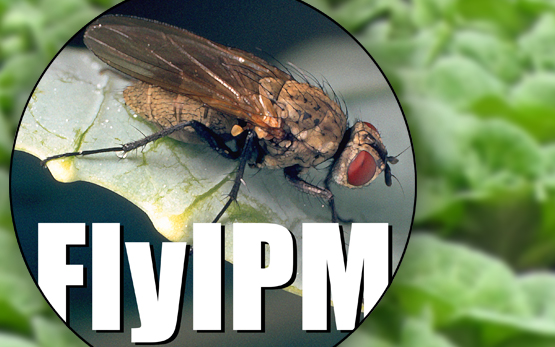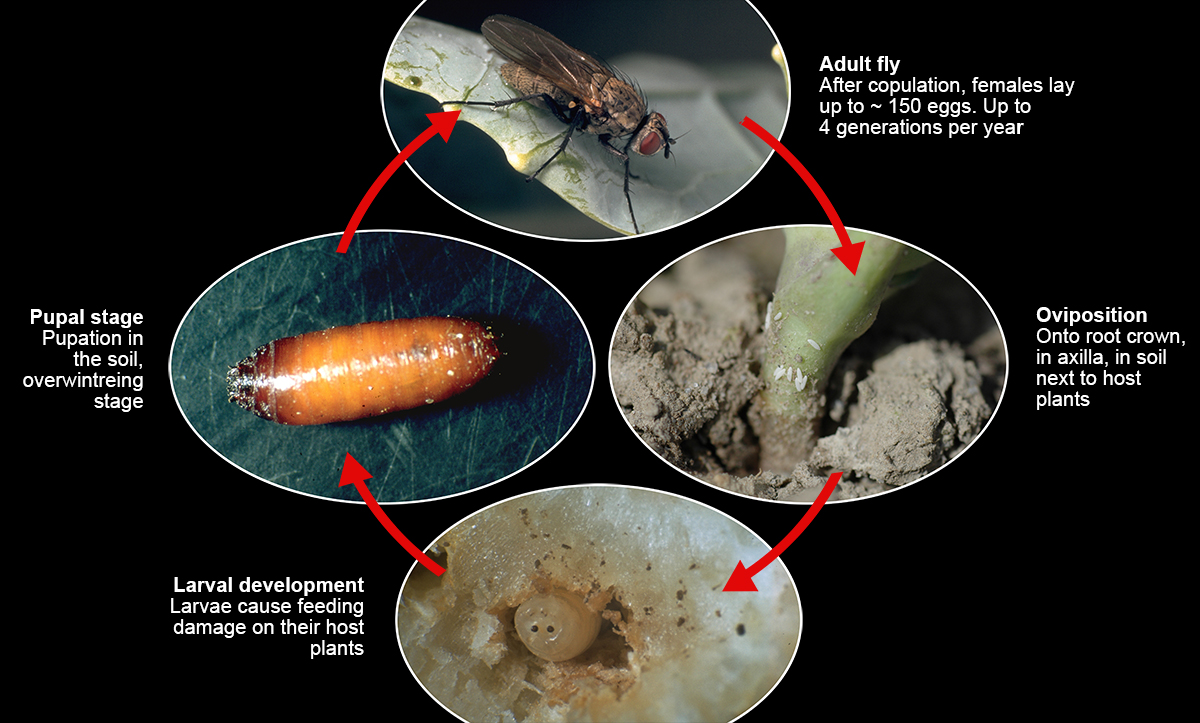FlyIPM News: This page contains news about the FlyIPM project and information from partners.

FlyIPM aims to improve the management of root-feeding fly larvae using an integrated approach and involving a significant proportion of European expertise on these pests.
To reduce the need for insecticidal methods of control
To improve the quality of produce
To minimise food-waste pre- and post-farmgate
To conserve the environment and protect human health
Nine partners from eight European countries are collaborating in a European project to research and communicate methods of improving Integrated Pest Management (IPM) of root-feeding fly larvae.
The duration of this project is 36 months (May 2017 - April 2020)
Project funding is about 1’104’778 €,
total costs are approximately 1’702’654 €.
Project coordinator:
Dr. Rosemary Collier
The University of Warwick
Wellesbourne Campus
CV35 9EF Warwick
United Kingdom
Objectives
The EU project Coordinated Integrated Pest Management in Europe (C-IPM) aims to coordinate and support European collaboration on Integrated Pest Management (IPM) and is granted € 2 million from the EU’s ERA-NET. The aim of C-IPM is to implement IPM principles in Europe as indicated in Directive 2009/128/EC on the sustainable use of pesticides. Following this regulation European countries have developed National Action Plans to reduce the risk and impacts of pesticide use.
FlyIPM – Integrated control of root-feeding fly larvae infesting vegetable crops - is a European project of the second transnational ERA-Net C-IPM call of collaborative research projects, funded by national authorities.
FlyIPM will improve control of pest root-feeding fly larvae of vegetables using IPM approaches. Collaborative research and extensive communication within the project consortium will assimilate information from basic and applied research to foster commercially-effective pest management practices.
FlyIPM Target pests: Flies and their
root-feeding larvae
Integrated control of root-feeding fly larvae infesting vegetable crops.
Delia radicum, D. floralis, D. antiqua, D. platura and Psila rosae – larvae of these flies considerably reduce crop yield and quality if not managed effectively. The root flies on which this project focuses have been researched in Europe and North America.
FlyIPM Workpackages
Integrated control of root-feeding fly larvae infesting vegetable crops
A number of potential components of IPM strategies have been investigated for one or more species, but control in Europe still relies mainly on the use of insecticides.
There is scope for refining and combining some of these approaches and for evaluating them collaboratively in different locations and cropping systems.
FlyIPM consists of 5 Work Packages (WP), and these will be undertaken in the context of environmental change and particularly the impacts of climate change on the relationship between crop production systems and their pests.
WP1 |
Phenology, monitoring and forecasting |
WP2 |
Potential for management by manipulating pest behaviour |
WP3 |
Interactions between plants, biological control agents and Delia radicum |
WP4 |
Building the IPM Toolbox |
WP5 |
Assimilation and dissemination of information on ‘best practice’ |
FlyIPM Links
Integrated control of root-feeding fly larvae infesting vegetable crops


Project Partners
Scientists from eight European countries belonging to nine research organisations are collaborating to improve the management of root-feeding larvae in outdoor vegetables.
CH: Agroscope
F: Institute for Genetics, Environment and Plant Protection
IRL: Teagasc
NO: Norwegian Institute of Bioeconomy Research
Links







